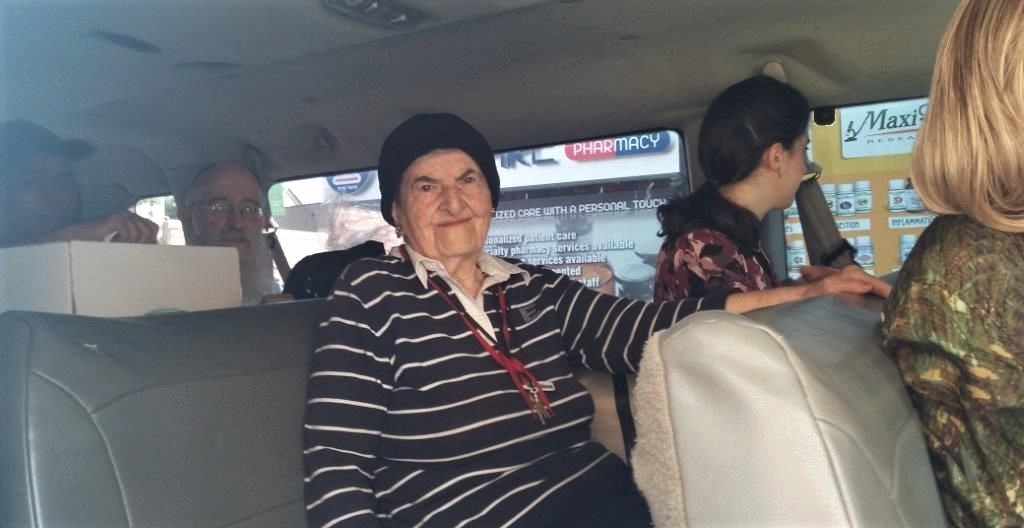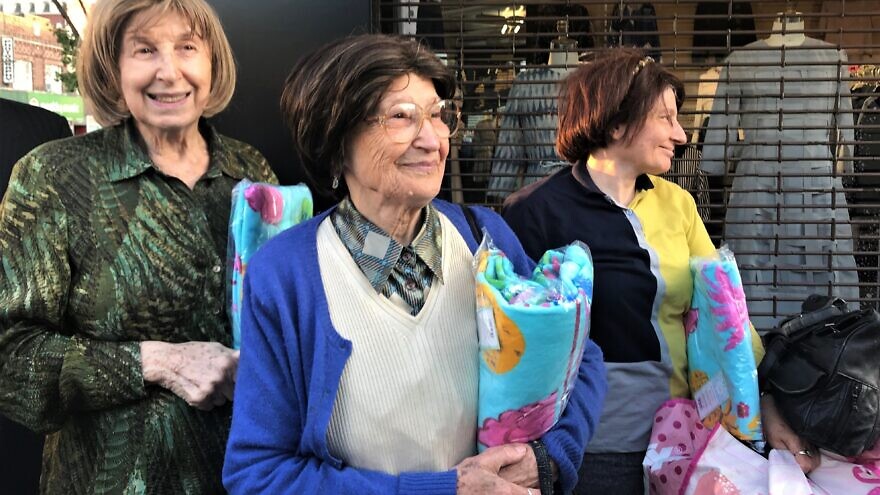A summer getaway is always nice. For some Brooklyn-area Holocaust survivors, it’s a lifeline.
The Blue Card, a nonprofit dedicated to aiding destitute Holocaust survivors, is preparing to host its annual summer retreat. It notes that it is the only organization in the United States whose sole mission is to help impoverished Holocaust survivors with cash assistance. Originally founded in Germany in 1934 to provide financial help to Jews fleeing from persecution, the Blue Card was re-established in the United States five years later to assist refugees escaping Nazi horrors.
“It’s very important, especially for me, because I never go away anywhere since my husband died two years ago,” survivor Lilian Feintuch told JNS.
“I’m always here alone, always thinking about my childhood. I really had no childhood because I was in a concentration camp,” she said. “When I’m at the retreat, I never think about anything bad. There are so many activities. I love going swimming, and even after I come home, it lingers in my mind for such a long time. I don’t have time to think about the bad things in the past and the bad things now.”
Milana Hazan, the organization’s executive director, told JNS that the getaway, especially on the heels of the isolation of the last two years brought on by the COVID-19 pandemic, is much needed.
“It becomes so quiet during the summer [in Brooklyn] as everyone goes away,” she said. “And I think our survivors are especially lonely when so many of their friends and relatives are leaving. So, this is a really special opportunity to get away from the city and join other families. It makes them feel remembered and loved and included.”
In the past, the Blue Card has partnered with agencies across the country to fly survivors to New York in order to participate in the retreat. But as survivors continue to age and with the pandemic still active, air travel has become more difficult, making this year’s retreat a Brooklyn-only affair. That means most of the survivors are already familiar with each other, some as close friends.
“We’re getting survivors out of their everyday, mundane routine so they can just experience something different. But I think being in a group of other survivors, they are looking into their past, and these are people they see frequently at their local Y and agencies. A lot of them are neighbors, with many living in the same building. So, naturally, by being together, they are reminiscing on the past and sharing their experience. And, of course, there’s no one better to confide in than a fellow survivor,” said Hazan.

‘We will be busy all the time’
Feintuch was born in Hungary and spent a year of her youth in the Vienna-Floridsdorf concentration camp, later surviving a two-week death march. She moved to New York in the early 1950s.
She said her neighborhood has undergone many changes, with less greenery and gardens turned into pavements. She said she’s looking forward to the multitude of recreational opportunities available to her next week.
“There are wonderful programs. We have exercise, arts and crafts, painting, Bingo. We will be busy all the time,” she said, adding that “the food is delicious. And the air when you get off the bus- the scenery is so beautiful. On my block, I could count how many trees are left.”
Of the approximately 75,000 Holocaust survivors living in the United States, approximately one-third live below the poverty level. In addition to the summer vacation program, the Blue Card supports Holocaust survivors in more than 35 states through emergency cash assistance, a dental program, monthly stipends, holiday support, hospital visitations, nutritional aid its Bring a Smile Program, which essentially grants survivors their final wish.


























